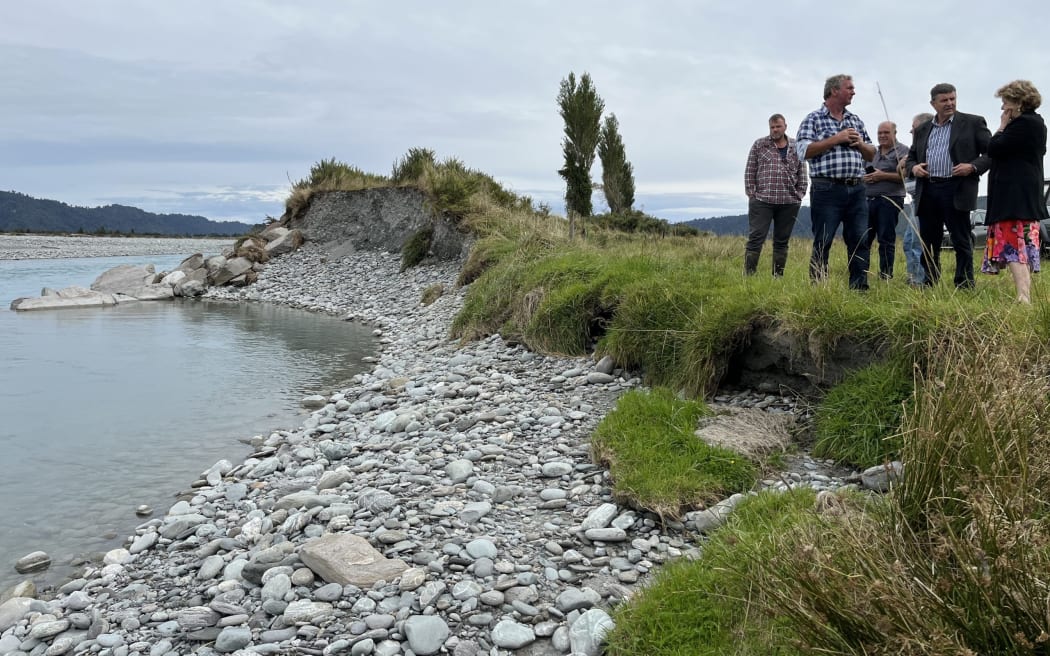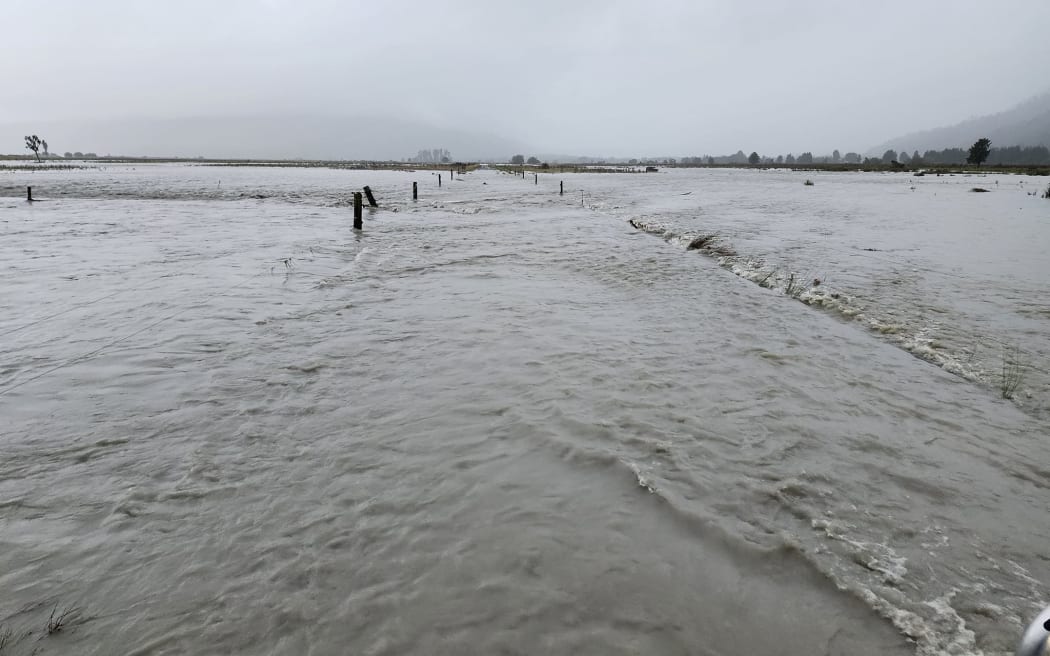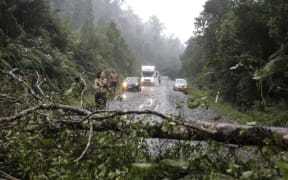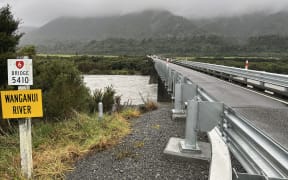
West Coast Regional council management and representatives earlier this month inspect the flood breach opened up at Waitangi weekend, and which just 48 hours later saw the river break through and severely flood farmland. Photo: Local Democracy Reporting/ Greymouth Star - Brendon McMahon
Two farms severely flooded last week when the Wanganui River broke through a hole in the stopbank face a repair bill of at least $1 million - and with no insurance.
The flood a week ago escalated what should have been an $80,000 to $90,000 fix by the West Coast Regional Council following the first stopbank breach at Waitangi Weekend, to one of more than $1m, dairy farmer and regional councillor Andy Campbell said yesterday.
The first-term councillor, and spokesman for the Wanganui River Rating District, is personally badly affected and said the outcome "disappointing".
"We've got to add it up and see where we go. There's got to be liability somewhere, doesn't there?"
But it could have been a lot worse, as critical assets such as his dairy shed and bridges on the farm were still intact, Cr Campbell said.
It was not the fault of councillors, who had asked for action weeks ago, but the regional council did need to ensure it did not happen again.
"We're the sacrificial cow I suppose," he said. An early dry-off and a big financial loss was on the cards, with a tough winter ahead while they try to feed stock, clean up and recover pasture covered in silt.
Campbell said his insurance only covered the loss of about 20 round hay bales but the flood had severely affected "the guts of the farm" on the western side of his cowshed.
"All our land from there to the outlet in Lake Ianthe had a metre of water over it."
A farm adviser had assessed "about $400,000 in lost production" and they were looking at drying off early. This represented at least an $80,000 loss for the rest of the season.

Photo: Supplied/Bernard Walkington
"We reckon about 150ha got affected and probably half of that is quite bad," Cr Campbell said.
A large area would have to be re-grassed but starting that depended on the stopbank being repaired first.
"Seventy hectares won't be any good until spring time."
About 3km of farm races were "stuffed" with 12km of fences down or covered in debris.
"The place is full of silt now."
The scale of the latest flood could be seen in 800m of the boundary fence with his upstream neighbour Bernard Walkington being washed away, he said.
Walkington said the flood had fanned out more across Cr Campbell's property towards Lake Ianthe, but his farm had also lost about 60ha.
The rest of the milking season did not look "too good" and they were grappling with trying to keep milking while retaining feed to winter over stock.
His milk production had halved and he was pulling back to reduce the pressure on feed, including sending cull cows away early.
"We'll definitely be drying off earlier."
Walkington estimated "hundreds of thousands" of recovery costs, on top of a $170,000 hit in lost income for the rest of the season.
"It's quite substantial for us."
They were not covered for loss of income in their insurance. He was weighing up his legal options.

"We're thinking we're going to have a bit of a case on our hands," Walkinton said.
The approaching Wanganui River Rating District annual plan was going to be "pretty interesting" given the scale of the recent event.
"The council is going to have to come up with some priority answers and sort themselves out."
Cr Campbell said repairs to the broken stopbank had been started and should plug the gap within a couple of days.
"It is starting to look safer, so we will be able to start working on our paddocks."
But in future the council needed to do emergency repair works within days, not two months after damage, he said.
"The council's pretty keen not to let things like this happen again. The Wanganui has probably had four to five breaches like this in the past 20 years, but we never lost any farmland."
The regional council has been approached for comment.
Local Democracy Reporting is Public Interest Journalism funded through NZ On Air



